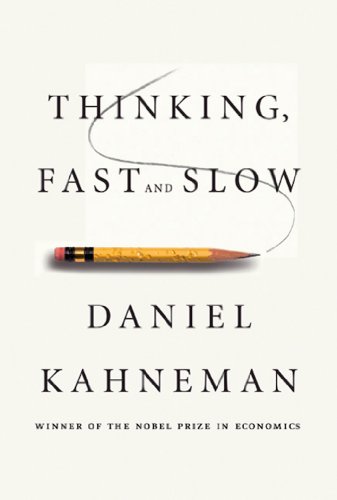

This article is an excerpt from the Shortform summary of "Thinking, Fast and Slow" by Daniel Kahneman. Shortform has the world's best summaries of books you should be reading.
Like this article? Sign up for a free trial here .
What is Kahneman’s “remembering self”? How does it differ from the “experiencing self”? Which affects happiness more: the remembering self or the experiencing self?
The remembering self is the person who reflects on past experiences and evaluates it overall. The concept of the “remembering self” was introduced by Daniel Kahneman in Thinking, Fast and Slow.
We’ll cover the difference between the remembering self and the experiencing self and learn how the former affects happiness.
Remembering Self and Experiencing Self
Kahneman presents two selves:
- The experiencing self: the person who feels pleasure and pain, moment to moment. This experienced utility would best be assessed by measuring happiness over time, then summing the total happiness felt over time. (In calculus terms, this is integrating the area under the curve.)
- The remembering self: the person who reflects on past experiences and evaluates it overall.
The remembering self factors heavily in our thinking. After a moment has passed, only the remembering self exists when thinking about our past lives. The remembering self is often the one making future decisions.
Remembering Self Evaluates Experiences
But the remembering self evaluates differently from the experiencing self in two critical ways:
- Peak-end rule: The overall rating is determined by the peak intensity of the experience and the end of the experience. It does not care much about the averages throughout the experience.
- Duration neglect: The duration of the experience has little effect on the memory of the event.
Both effects operate in classic System 1 style: by averages and norms, not by sums.
This leads to preferences that the experiencing self would find odd, and show that we cannot trust our preferences to reflect our interests.
Remembering Self: Ice Water Experiment
In the ice water experiment, participants were asked to stick their hand in cold water, then to evaluate their experience. Participants stuck their hand in cold water in two episodes: 1) a short episode: 60 seconds in 14°C water, and 2) a long episode: 60 seconds in 14°C, plus an additional 30 seconds, during which the temperature increased to 15°C. They were then asked which they would repeat for a third trial.
The experiencing self would clearly consider the long episode worse—you’re suffering for more time. But the longer episode had a more pleasant end.
Counter-intuitively, 80% of participants preferred the long episode, thus, in Kahneman’s view, suffering “30 seconds of needless pain.” They picked the option they liked more.
Oddly, people would prescribe the shorter episode for others, since they care about the experiencing self of others. But when thinking about themselves, they care more about the remembering self.
Oddities of the Remembering Self
More examples of oddities with the remembering self:
- We tend to want to capture a moment (through a camera) rather than fully experiencing it—even if we never look at the video again.
- An experiencing self declares “I will never forget this moment”; the remembering self frequently forgets.
- Would you take a vacation that was very enjoyable, but at the end you took a pill that gave you total amnesia of the event? Most would decline, suggesting that memories are a key, perhaps dominant, part of the value of vacations. The remembering self, not the experiencing self, chooses vacations!
- Inversely, you have two options for an operation: 1) you undergo general anesthesia, but will endure a month of mild pain after; 2) you remain conscious and feel intense pain, but are given amnesia to remove any memory of the episode.
- Many prefer #2, indifferent to the pains of their experiencing self. It’s as though you are only your remembering self, and the experiencing self (who actually does the living) is a stranger.
- We can enjoy a movie all the way throughout, but if the ending is poor or interrupted, we have a worse impression.
- In general, we favor peak highs with short duration, rather than moderate highs over long duration. (Shortform note: this includes intense sensations like roller coasters and perhaps use of narcotic drugs.)
- The end of someone’s life tends to matters a lot more than duration. For someone who dies at age 57, you don’t care as much if they lived a whole extra year to age 58. But you do care about whether she was surrounded by her family in her last 10 minutes, or whether she was alone.
- Similarly, In an experiment, people were told of Jen, an extremely happy person throughout life who died painlessly at 60 in an accident. Another group was told of a similar Jen who lived to 65, with the first 60 years equally happy as the first Jen, but with the last 5 years being slightly less pleasant. The 5 only “slightly happy” years caused a drop in perceived total happiness in that life. Again, this is System 1 caring more about averages than summing the total experienced happiness.
- After a person dies, we feel moved by changes to their stories that they clearly did not experience.
- A man may have died happily believing his wife was faithful, only for us to find out postmortem that she had a lover. This is crushing, even though the man obviously did not know this before he died.
- We feel redemption in an artist who died in poverty but achieved posthumous fame.
These examples challenge the idea that humans have consistent preferences and know how to maximize them (the rational agent model). We will consciously articulate that we prefer pain to be brief and pleasure to last, but our remembering self has different ideas.
(Shortform note: how might duration neglect and peak intensity be evolutionarily advantageous? Maybe it makes us more resilient to painful episodes. If we strictly assessed utility by integrating the area under the curve, a very traumatic experience could leave us in “happiness debt” that would take considerable time to overcome.)
Seeming Exceptions to the Theory of the Remembering Self
There are yet exceptions to the principles we’ve covered. If duration neglect is so strong, why does a painful labor that lasts 24 hours seem worse than one lasting 6 hours? Why does a 6 day vacation seem better than 3?
Kahneman argues that the mechanism of the longer duration is in changing the end state—a mother is more helpless after 24 hours than after 6; the vacationer is more relaxed after 6 days.
(Shortform note: another possible exception—if the remembering self makes the decisions tyrannically, why are good behaviors like flossing, losing weight, and saving money so difficult? The experiencing self endures short-term pain, but the remembering self should discount the pain and remember the benefits. Even better, the experiencing self in the future enjoys the fruits of labor of the past experiencing self!
It could be that the remembering self doesn’t actually experience the pleasure of long-term gains. Better health in your 30’s rewards you when you’re 70, which you’ve never experienced. Meanwhile, the memory of a delicious hamburger looms larger. The same goes with saving for retirement—if you’re younger, you have no memory of being financially secure in retirement, but you do remember how that last impulse purchase made you happy.)
———End of Preview———

Like what you just read? Read the rest of the world's best summary of "Thinking, Fast and Slow" at Shortform . Learn the book's critical concepts in 20 minutes or less .
Here's what you'll find in our full Thinking, Fast and Slow summary :
- Why we get easily fooled when we're stressed and preoccupied
- Why we tend to overestimate the likelihood of good things happening (like the lottery)
- How to protect yourself from making bad decisions and from scam artists






